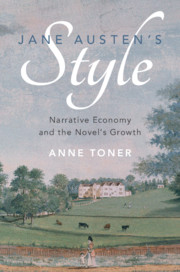Chapter 3 - Dialogue
Austen’s Missing Speakers and the Case for Free Direct Discourse
Published online by Cambridge University Press: 18 February 2020
Summary
Austen has long been celebrated for her skill in writing dialogue and for its dramatic qualities. This chapter analyzes her dialogue by drawing attention to the way she attributes speech to speakers. There are few extant comments by Jane Austen on her own novels, but she did write of Pride and Prejudice that “a ‘said he’ or a ‘said she’ would sometimes make the dialogue more immediately clear”. This chapter examines this statement closely and it points to the significance of “free direct speech” – unattributed direct speech – within her fiction. By minimizing attribution in this way, Austen cultivated dramatic dialogue and the depiction of speech across a group, but she also accepted the possibilities of ambiguity and error. Free direct speech is an underexplored speech category that is closely related to free indirect discourse, which is arguably Austen’s greatest technical contribution to the novel. As well as examining free direct speech in its own right, this chapter argues for its significance in the development of representing consciousness.
- Type
- Chapter
- Information
- Jane Austen's StyleNarrative Economy and the Novel's Growth, pp. 131 - 184Publisher: Cambridge University PressPrint publication year: 2020



